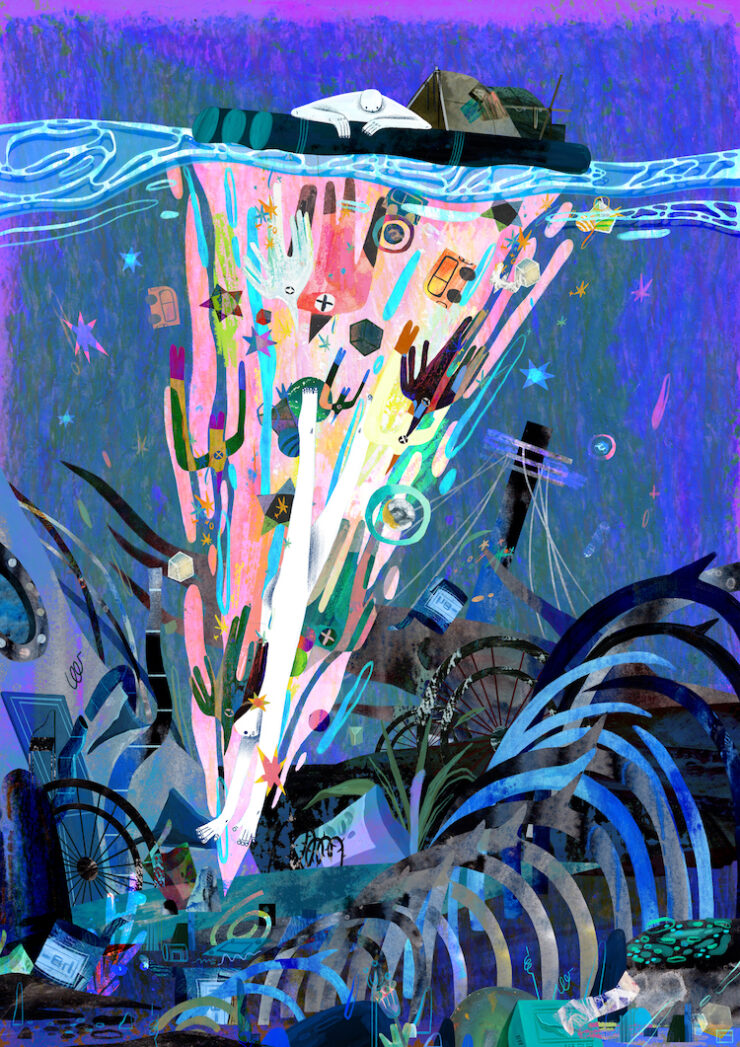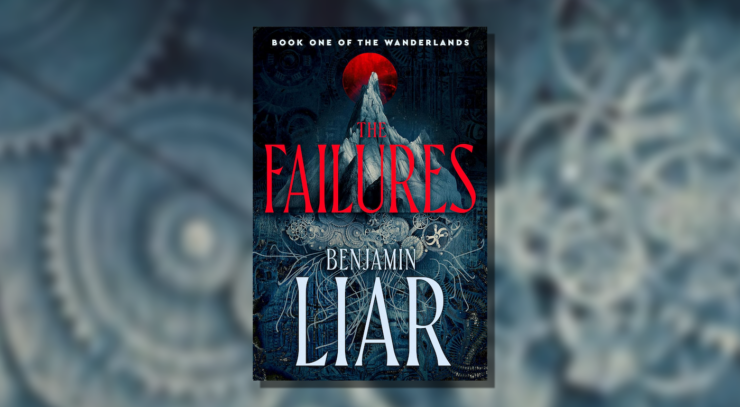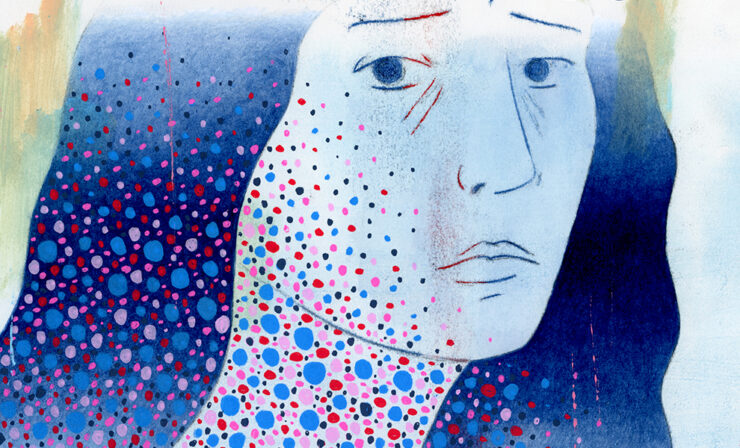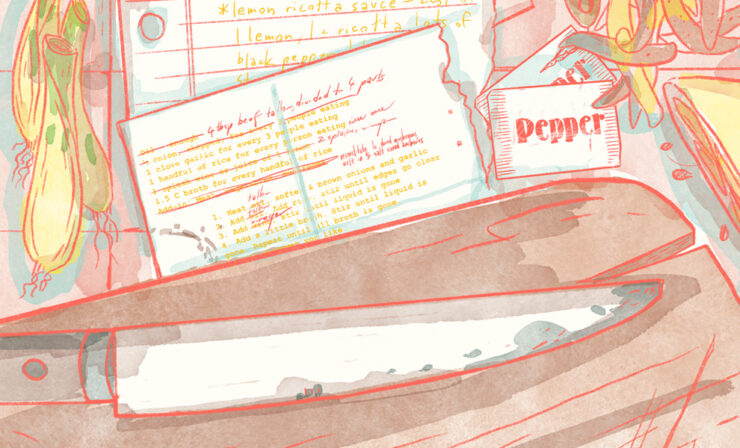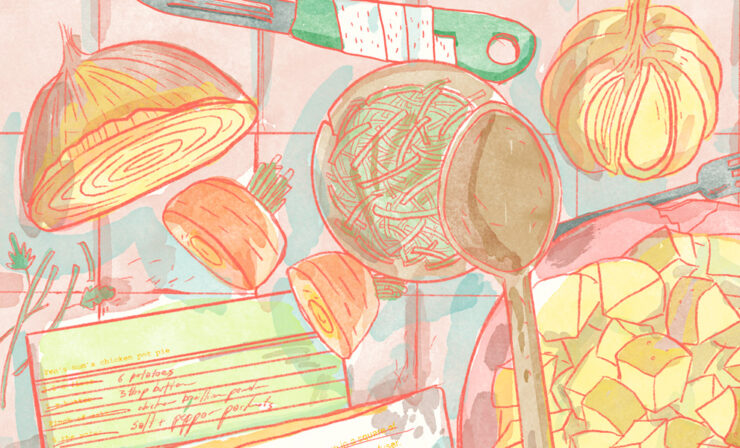When the waters rose, the people who stayed on the River learned they weathered the storms best together, but what happens when one of their own becomes curious about the Land?
Back before I wrestled the River for Sheckie and won, they called us the three troubles.
Sheckie was a cobbler of leather, cloth, and plastics. Oramon made clothes. I wove houses. I’d woven the house we lived in, but I was still learning then, and when it stormed the rain came through the roof in spits and dribbles.
“You should fix that!” Oramon would shout at me, as the rain put icy fingers down the back of my shirt.
“I will!” I would shout back. I never did.
We lived, in these latter days, in tall, airy homes made from bundles of plastic bags twisted thin as reeds, bound together with monofilament, windows inset with translucent panes of remelted LDPE. Our houses floated lightly on the broad green back of the River that had swallowed every river, the River that had crept across the doorsteps of our forefathers. The old houses, stick-built, cinder-block, and brick, went black and green with mildew, crumbled, and sank.
“You have to wonder what they were thinking,” Sheckie said between dives, as we plumbed the wreck of a colonial for needles, cutlery, nails. We piled our wet treasures on a plastic sheet on our raft. “How they let it get this far. Why they never stopped.”
But Sheckie was a philosopher. I didn’t think so deeply, or ask so many questions, and neither did my brother Oramon. We looked after Sheckie, the two of us, knowing he hadn’t the sense to look after himself. The River had brought him to us, sudsy and yowling, in a tub half filled with bathwater. Oramon lifted him out like a kitten by the scruff and finished the washing-up and put him in clothes. He couldn’t have been more than two at the time.
Besides Sheckie, the River also gave us trash: single extruded slippers and molded jugs, swirling accretions of plastic, lumps of sodden cloth. It gave us odd-sized branches and uprooted trees, which we lashed into our raft. What we needed that the River didn’t bring, we could find by diving, which was dangerous, or by boating to the world’s graveyard.
That was our winking name for the landfill. It sat well above the River, smugly dry. The world’s graveyard was where we found the aluminum and steel that we needed for knives, stoves, chimneys, and pots. Occasionally we hooked metal debris on our rods instead of muddy-tasting carp, but if we needed something fast, we went to the graveyard.
Sheckie and Oramon and I shared a single pair of scissors, the best scissors, which we had dug up from the world’s graveyard. We had other scissors, of course, punched from unrolled tomato cans, but these were the best scissors, and we stole them back and forth from one another.
Whenever I rowed out to weave a new house, balancing bundles of bag-threads on the back of the raft, I would steal the scissors the night before and sleep with them under my pillow, to be sure.
Oramon was clumsy—I always caught him. I dunked him face-first in the River to teach him a lesson. But Sheckie was good at slipping them out, between one snore and the next, and sneaking the not-so-good scissors in, so when I groped for them in my sleep I felt the right shape. Sheckie could get away with it. And Sheckie often did.
Not that I blamed him; tire rubber was a chore to trim, and more nights than not Sheckie’s hands were gashful from slipped knives.
Still, the house-weaving was the best chance of all our work for a sack of snails and freshwater mussels, or bunches of watercress and mint, or a stack of dried fish. When I was called to weave a house, we knew we’d all eat. And so I slept with the good scissors and left at the first brilliant seam of dawn and worked day and night until the new house was done, its triple-peaked roof pointing proud at the sky.
Whoever had hired me, the new couple or family or circle of friends, would exclaim their pleasure, pound my back until I couldn’t breathe, and salve and bandage my hands. I might even receive a disgruntled rooster, sharp and vicious, its feet hobbled with twine.
Those were good nights. The pot we had riveted from flattened coffee cans simmered for days, making the whole house fragrant, until even the chicken bones went soft.
So I was furious when I discovered, one afternoon in early fall, after rowing for two hours to where a new house was to be woven, the second-best scissors at the bottom of my kit.
“I’ll push him in the River,” I said. “I’ll feed him to the fish.”
I had mined a rich vein of Styrofoam the previous week and meant to gift it here, the whole precious stock of it, buoyant and perfect as it was. These were poor holy women, as there always have been. We three troubles would benefit from their good opinion. We would also benefit from the strawberries they grew in eared clay pots with the compost claimed from toilet rafts.
“We thought we should have a new one before the hurricane days,” the old women said with a touch of apology, as if I didn’t regularly row two hours to weave. “Our old house blew apart last year.”
“What happened?” I said, lashing their new dock together.
“The builder was a lagabout. One storm, and—gone.”
“What did you do?”
“Scattered,” they said. “To families. Neighbors. They’ve put us up until now. But we live best together. Best if we weather the storms as one.”
“Best,” I agreed, though the yellow hurricane weather made all things eerie, other people included.
I had a tenth of the longhouse lashed into bundles by the time the evening fell red around us. This was half my regular speed, but the scissors were devilish, dull and sore, and bit my fingers more than they cut the bags or monofilament.
“Do you have a lantern?” I said, thinking to work through the night.
“Yes,” the women said. “You may have it for a while, but then you must put it out and sleep. Jules’ brother has just enough space for you. No sense in overwork. The River buried all of that.”
They brought stewed fish to me while I worked, and I stopped and ate gratefully, my hands a mess of ache.
Jules’ brother found a blanket that smelled like dog to cover me with, and I lay down in a dry corner of his house. Outside, I could hear the women singing a song without words.
Weariness rushed over me in a long warm wave, and I sank into sleep.
On the second day, the holy women set aside their other labors and came to help. One had a knife that cut clean as a minnow through water, and this sped up the cutting, the bundling, the lashing.
“Wish I had a knife like that,” I said with an oily look at it, and the woman laughed and said it was worth more than a house to them.
“At least tell me who made it.”
It was a gift from the hurricane, they said. A piece of high-carbon steel rebar that had battered their old house, indeed helped batter it to bits. The holy women had forged it flat and sharpened it.
“But you weave houses,” they said. “How are your tools so poor?”
I grumbled to them about Sheckie’s theft and about Sheckie himself. Some of them clicked their tongues and made pitying noises like that-poor-boy. Ripe for plucking they were. I was glad for those who hadn’t. Sheckie had missed an excellent life by not drifting up here. Half the women would have buttered his baby face and half would have frog-marched him into decency.
“But you’ve hurt yourself,” the women said. “And the swamp doctor doesn’t come your way.”
“Give me your knife, then,” I said.
They laughed and gave me a stinking, stinging salve instead to rub into the red cuts in my hand. It did deaden the pain somewhat.
With their help and their knife, I finished the longhouse on its Styrofoam barge. Five days it took. I looked one last time at the knife, feeling a Sheckie-itch to steal it, and resisting with thoughts of strawberries. In place of the haystack of twisted plastic fibers I’d brought, the raft now held a box of spare medicine, ten yellow squash, and a heap of leathery dried fish to soak and chew.
“Hope this one lasts,” I said.
“We know how to find you,” they said.
The oars ate into my raw palms as I rowed slowly home. Most birds had died off long ago, but here and there a cantankerous heron flopped off, scattering water like glass and diamonds. Skeletal trees gone white with salt broke the surface of the River. The odd fish jumped.
Sheckie was trimming soles and uppers of tire leather by our house, humming, his bare feet paddling in the River. The scissors flashed silver in his hand. When he saw me, he jumped up and ran inside. As he ought. I was tired, but not too tired, once I’d tied up the raft, to chase him inside and out again, along the floating spans we had spun to other houses.
“I’m too tired to beat you,” I said, hands to knees, panting, when I caught him. He’d shimmied up the peak of the fish-farmers’ house, and his pointy, knobbly feet were threatening to undo my good work. The farmers had come out to gawk. “Come down from there.”
“Say I’m forgiven,” Sheckie said.
“Not forgiven,” I said, “but not beaten either.”
“Say you won’t throw me in the River.”
“Slide down,” I said. “Slide down right now. Swear if your foot goes through this roof I’ll dunk you fifty times.”
He stuck out his lip at me—a sweeter look at two than seventeen—and alighted on the dock.
“Look at my hands,” I said. “Look what your scissors did to my hands.”
“I made eight whole pairs,” Sheckie said. “Look at the fish-farmers’ feet. Those are mine. Made shoes for Oramon and you too.”
“It’s hurricane days soon. What if I hadn’t finished that house?”
“They’d be fine,” Sheckie said, unflappable. “You too. Heard a story about the Land, by the by.”
I grunted and headed for our house, for this was not a topic I wished to discuss with Sheckie. Not now. Not with the curious shine in his eyes, and the sky even now shuddering with algal hues.
He jogged alongside me, as persistent and sticky as he had been fast and slippery before. “Is it true? You’ve been everywhere; you must know.”
“Haven’t,” I said. “Haven’t been everywhere. Only three hours this way, three hours that.” And I gestured broadly at the sinking, slimy gables around us.
“But have you seen the Land?” Sheckie said.
“Don’t make me make Oramon toss you in the River,” I said.
“You promised you wouldn’t!”
“Said I wouldn’t toss.”
Oramon was back and unpacking the raft by the time we returned.
“You’ve been telling stories,” I said to him.
“Not me,” he protested. “The basket weavers asked him to make them shoes, and they talked while he was measuring.”
“So the Land is real,” Sheckie said. “You’ve been keeping it from me. Give me your shoes back, both of you.”
“You haven’t even given him his pair,” Oramon said.
“Well, he won’t get them now. Hiding all of that—”
“Like you hid my scissors?” I said.
“Not the same thing,” Sheckie said. “Hiding and whispering and this whole time knowing about roads and cars and ambulances and phones and not telling me—”
“There was no need,” Oramon said.
“I looked like an idiot! Them talking about TV and internet. My mouth open.”
Oramon said, “You could have closed your mouth.”
I said, “You saw a TV on one of our dives. Big black rectangle. Nothing much.”
“Give me those shoes back.”
“Enough,” I said. I was tired from the rowing and the running and now Sheckie yelling. “You’ve been to the Land. You, Sheckie. Yourself.”
“What? Lies.”
“At three,” I said. “Red blotches all over. A high fever. None of the medicine worked. I put you on the raft and rowed and rowed. Five, six hours. West. Eventually I bumped up against the Land and held you out to some surprised vacationers at their picnic, and they drove us fast as possible to the hospital. So you’ve been and seen. You just don’t recall.”
Sheckie’s mouth fell wide open again.
Then he sucked in a greedy breath and peppered me with questions.
“I didn’t see very much,” I said. “Was busy looking at you. They put a lot of tubes in you. A bunch of needles. I watched to see that you breathed.”
“Did they look like us?” he pleaded. “You must have noticed that, at least.”
“More or less.”
“More or less!”
He kicked the box Oramon had brought in, rattling the bottles.
“Quit it,” I said.
“Why didn’t you leave me there?” he said.
“Never thought of it,” I said. “You were family then.”
“I could have grown up on the Land!” he said. “With new things, with cars, with electricity—”
“The world laws hold there too,” I said. “Nothing new. No extruders of plastic. No oil drills. Only the old things melted and patched and fixed. Plus tree-dropped wood. Plus medicine. No meat from more than ten miles away. So not different from here.”
“You said drove,” Sheckie said. “Drove us to the hospital.”
“They’re running their old cars down. Not making more. Electricity only,” I said.
“What makes them so special?” he said, frowning. “Why do they have the Land, and we have the River?”
“Nothing,” I said. “Some lived there before the River came. Some lived here, and when the waters rose they moved inland.”
“Our family, most of this town, they didn’t leave,” Oramon said. “They waded through water in their living rooms. Then they moved to the second story. Then the attic. Then the roof.”
“They learned to build and remake things,” I said. “If they didn’t know already. Most of the ones who left didn’t know those things. That’s why they left.”
“The undersea cables connecting everyone—those corroded from the ends in. Soon as the sea spilled into basements. All the jobs depending on that . . .” Oramon shrugged. “Think they hoped they could continue, if they moved west.”
“Could they?” Sheckie said. “Did they?”
“Don’t know,” I said. I was mud-tired, swaying. “Oramon, soak the fish. I’m going to bed.”
“Useless,” I heard Sheckie mutter under his breath.
That should have warned me. I knew the silver-slick look in his eye. But the house of the holy women and the long row home, then the run and all the shouting, had wrung me out.
I slept like a stone.
In the morning the smell of boiling fish was on my tongue, the light was murky, and Sheckie was gone.
This was not unusual for Sheckie, who roamed and dived and picked for junk whenever he pleased. But his clothes and his awl and his needle and threads were gone too, along with two fish and the second-best scissors. He’d left a pair of new shoes at the foot of my bed, and I pulled them on, sick. When I looked outside and saw the raft missing, I cursed. Gray fish-belly clouds swam over the sky, and a stiff breeze plucked the plastic reeds of our house.
“Let him go,” Oramon said. “He’ll come back if he likes.”
“That’s our raft!”
“He left the best scissors,” Oramon said.
“I don’t like it,” I said. “I don’t like it at all.”
“You don’t have to like it.”
“But the sky,” I said. “It’ll be hurricanes soon.”
“But not yet,” Oramon says. “He can make it before then.”
“Monster,” I said. “You thimbled brain.”
“I feel the same as him,” Oramon said. “Just quieter.”
“What?”
“If he’d asked, I’d have gone along with him.” He raised an eyebrow at my expression. “You’re the only one’s ever seen the Land.”
“It’s nothing.”
“It’s different. Sometimes that’s—”
“What does it matter?” I said.
“To know we could live differently? People have started wars for less.”
“If he wants to go to the Land,” I said, “he can. Good luck to him. I’m done with this.”
“He’s grown,” Oramon said. He turned back to the coat he was cutting from an old sheet of vinyl, the best scissors flashing in his hand.
I made a circuit of our floating village, bridge to bridge, checking my handiwork for sturdiness and leaks. Where I noticed weakness, I added anchors of old wires and cords. A shredding wind could come, but as long as the bundles stayed bound, the home would sit firm. The rising waters that drowned the old houses and towns only lifted our houseboats a little higher for a time.
Some months later, the rains would cease, and the River would shiver and shake off long brackish swells to the sea.
A fat raindrop plopped onto my nose. I had come to the fish-farmers’ dock on my rounds, and now I glanced at the hollowed log they used, lashed up to their dock. More rain spattered down.
I knocked at the door.
“If I needed it,” I said. “Say if our beloved idiot was caught out in a storm, having taken our raft but not knowing how to row. Could I borrow your boat?”
“And what if you lose it?” the father, Marks, said. “How do we tend to our pens? Should we starve, all of us, because of an idiot boy?”
“The bean-growers have a dinghy,” the girl Twohey said. “Scavenged. A bit sinky,” she added as an afterthought. “Haven’t fixed it yet.”
“Well,” I said, nodding to them, “stay dry. We’ll need the fish.”
And I thrust my hands in my pockets and headed for home, meanwhile thinking with Sheckie-esque slipperiness how quickly I could unrope the log and make away with it.
The rain slammed down with the force of a soliloquy then. And with it, the wind.
I ducked into our home. Oramon was pacing back and forth, the floor flexing uneasily underfoot.
Rain slapped the roof. Wind whistled through the leaks and narrow places.
“What do you say now?” I said. The pallor of his face said everything.
“The fish-farmers have a boat,” he said, ticking them off on his fingers. “Bean-growers too, though there’s a hole in it.”
“Right,” I said, and ducked out again, into the storm.
For it was a storm by then: sky like the bottom of a rusted pan, rain driving sharp and silver into my face. Sloppily I stumbled back to the fish-farmers’ dock. The farmers themselves were safely inside, their windows aglow. With wet and clumsy hands I undid the mooring and stepped into the log.
This handled differently from the raft. I unshipped oars and dug in, ignoring the water puddling at bottom and ankles, the unsettling roil of the River being fed.
West was easy by landmarks and habit for an hour—this particular white tree-crown, that crumbling chimney—even with the wind shirring water into steel, even with my eyes gone blurry with wet.
After that I did not know for sure, since the one compass we had was nailed to the raft. After that I rowed with worry in my stomach and sourness in my arms. I bellowed Sheckie’s name, but no one could hear anything in that wind.
Branches snapped with a sound like chicken bones and flew past me, spearing the water.
My hands went stiff and numb with cold. The log constantly threatened to roll over with me in it, and I bucked and swayed to stay upright. I cursed Sheckie for his fecklessness, the River for its treachery, the fish-farmers for carving such a sorry boat.
Hours I paddled, shouting, swearing, aching. The sky was river mud and snails.
I saw the chimney first.
A crumbling brick remnant protruded above the water by barely two feet.
Sheckie lay flat out on the raft, both hands clasping the chimney’s cracked concrete crown. All else—oars, food, scissors—had washed away.
Every new swell of the River rammed the raft into the chimney. As I watched, another brick loosened and slipped away, sinking. Then half a brick came away in Sheckie’s hand.
Though I shouted his name, he gave no sign of hearing.
The whip of the rain in my face, I steered the log alongside, flung the paddles onto the raft, and half leaped, half crawled aboard, nearly tipping us over.
That slight shift was the end of the canoe: it rolled, filled, and sank.
The stub of chimney gave way. Sheckie’s hands dropped into the water. He made no other move.
I rolled him onto his side as best I could, waves sloshing us, threatening to steal the oars. I checked the waterlogged compass, set course, and rowed.
Perhaps another hour passed. Time seemed an antique concept now.
We ran aground before I knew it, the raft grinding into sand. It almost kicked me overboard. Sheckie stirred slightly, and the hot relief I felt gave me strength to shove his body onto land.
I had no rope to tie the raft. As soon as I stepped off, the River dragged it away. I didn’t turn to watch it go.
There was a light on the hill. I battled the wind to climb toward it, each step as tiring as a mile.
What I remember is my knocking, and the door opening into a square of light, and Sheckie slumped on my shoulder, barely breathing. Then I pitched forward into blackness.
“You’ve had a bitter time,” the doctor said. “But your fever’s down.”
The room was whitewashed mud brick, clean and dim. I was lying on a pallet of wool and shredded plastic, which crackled as a I shifted. The sound of rain on the roof was sweet.
She tipped me a cup of water, and I drank, tasting mud.
“Sheckie—”
“The boy’s fine. He’s sleeping now.”
I sighed the longest sigh of my life and closed my eyes, and then I was too.
The Land had electricity, and at night all kinds of insects bobbed and danced about the lightbulbs set outside. We sat under one, slapping mosquitos, looking at the dark shape of the River.
“You’re not going to apologize, are you,” I said. “For stealing the raft. For fooling almost to my death and yours.”
“Do you want me to?” Sheckie said.
I grunted, noncommittal.
“Isn’t this better than the River?” he said. “They have so much! Even some running trains, they said, on the tracks that aren’t underwater. And I saw a house made out of an old plane!”
I grunted.
“Not as good as your houses,” he allowed. “And their shoes aren’t better than mine.”
“Soft,” I said. “Land makes you soft.”
“Maybe.”
“But if that’s what you want,” I said. “They surely need you.”
“You’ll be making a raft soon as you can,” Sheckie said, “won’t you. Oramon will be worried.”
“I’ll be making a new raft.”
“It’s just that, wood on the Land is scarce, and they have to leave every living tree standing. You can only take what washes up.”
“Is that so,” I said.
“It’ll take a long time, I expect,” he said. “Weeks. Months. Maybe years.”
“Maybe,” I said.
“So I expect you’re stuck with me,” Sheckie said. “For a while.”
“For a while, sure,” I said.
“They’re making you a crown,” he said. “With copper wire. I heard. That’s the most valuable thing you can get, on the Land.”
“That’ll be good for the raft,” I said. “Rope’s also good.”
“They said most people wouldn’t go out in a storm like that. For anyone.”
“Now that,” I said, flattening a bloody mosquito on my arm, “is a load of nonsense. Anyone on the River would.”
“But that’s the River.”
“That’s the River.”
There was a silence.
“I’ll come back,” he said. “Someday. You’ll see.”
I said, “I know.”
All around us the fireflies flickered their own bright codes.
“The River and the World Remade” © 2023 by E. Lily Yu
Art copyright © 2023 by Changyu Zou
Buy the Book
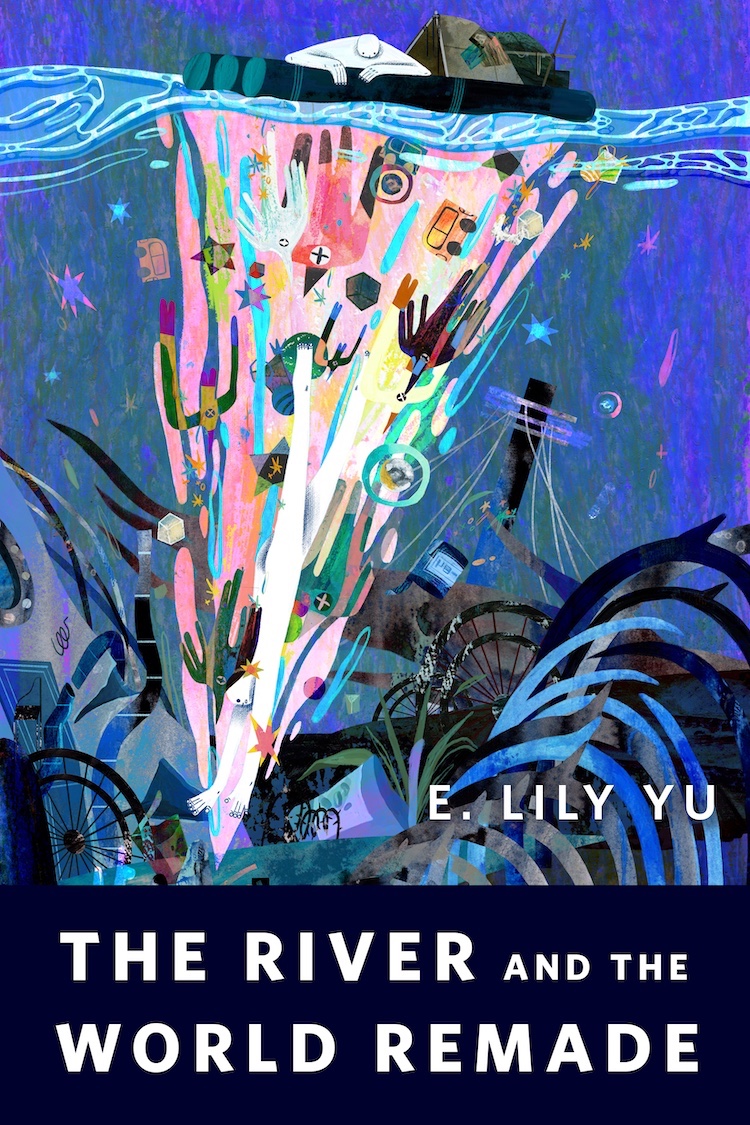

The River and the World Remade










